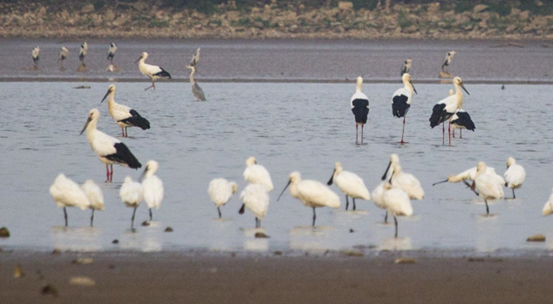By He Yin, People's Daily
A UN deal aimed at reversing biodiversity loss and setting the world on a path of recovery has been adopted at the second part of the COP15, formally known as the 15th meeting of the Conference of the Parties to the UN Convention on Biological Diversity, in Montreal, Canada on Dec. 19, local time.
The deal, officially known as the Kunming-Montreal Global Biodiversity Framework, has mapped out a new blueprint for global biodiversity governance up to 2030 and even beyond.
The international community believes that the Framework is both ambitious and practical, and is of milestone significance.
The meeting adopted over 60 resolutions and reached consensus on the goals and targets, resource mobilization and Digital Sequence Information, or DSI, under the framework.

At the meeting, countries pledged to have restoration completed or underway on at least 30 percent of degraded terrestrial, inland waters, and coastal and marine ecosystems by 2030. It was made clear that developing countries will be supported by capital, technology and capacity building.
The Framework will guide the international community to stop and reverse biodiversity loss, promote biodiversity recovery and realize the vision 2050 of "living in harmony with nature."
UN Secretary-General António Guterres said the Framework has unquestionably brought new hopes to human and nature.
On October 12, 2021, Chinese President Xi Jinping addressed the leaders' summit of the COP15 held in Kunming, southwest China's Yunnan province via video link. Recently he once again delivered a keynote speech via video link at the opening ceremony of the high-level segment of the second part of the COP15. Xi’s speeches contributed Chinese wisdom, plans and strength to enhancing biodiversity conservation and injected important impetus for the meeting to achieve positive results.
China has made unremitted efforts to play a leading and coordinating role as the presidency of the COP15. It promoted the adoption of the Kunming Declaration at the high-level segment of the first part of the COP15, charting the course for reversing biodiversity loss.
Between the first and second parts of the COP15, the country convened nearly 40 meetings of the presidium and more than 100 bilateral and multilateral coordination meetings at different levels to promote greater consensus among all parties.
China also made full use of important occasions and opportunities such as the UN, the G20, and the 27th session of the Conference of the Parties to the UN Framework Convention on Climate Change (COP27) to communicate and coordinate with all parties to make the second part of the COP15 a success.
Elizabeth Maruma Mrema, executive secretary of the UN Convention on Biological Diversity noted that the reaching of the Framework is not only a victory for China alone, but the whole world led by China.

The Framework boosted the world's confidence in joining hands to cope with global challenges. Biodiversity loss is a common challenge faced by entire humanity. To promote global biodiversity governance, multilateralism must be practiced. The high-level segment of the second part of the COP15 was joined by the largest number of representatives in the history of the UN Convention on Biological Diversity, which fully demonstrated the political will of all parties to advance the global process of biodiversity conservation. All parties worked to meet each other halfway during negotiations, demonstrating the spirit of cooperation. Facts once again proved that only by working together can the world accomplish big and great things with a far-reaching impact.
Now what remains important is the implementation of the Framework. All parties shall translate their consensus into effective policies, concrete actions and specific projects. Most of the regions with rich biodiversity are located in developing countries, which are in urgent demand for capital and technological support to cope with biodiversity loss. At the second part of the COP15, developed countries promised to provide international aid for biodiversity conservation of at least $20 billion to developing countries annually by 2025 and $30 billion by 2030. Developed countries shall fulfill the promise and take concrete actions in international aid, technological transfer and personnel training.
A civilization may thrive if its natural surroundings thrive. The international community shall make concerted efforts, safeguard real multilateralism and forge strong synergy for safeguarding the planet.
China will actively implement the Framework, support other developing countries in their biodiversity conservation efforts, enhance exchanges and cooperation with developed countries and work with all parties to build a community of all life on Earth.


